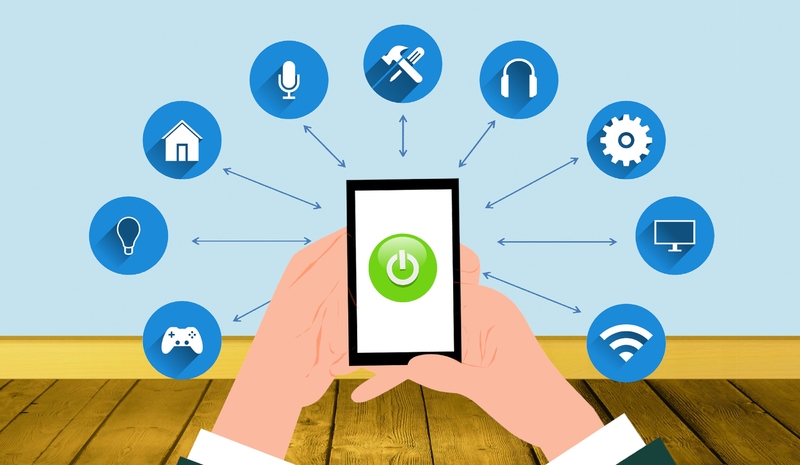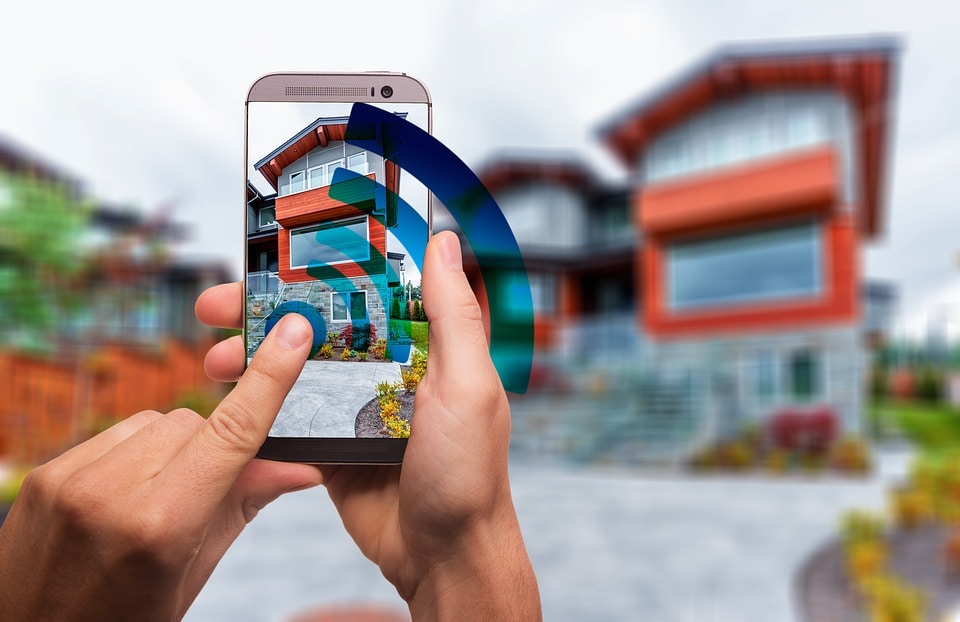We are currently living in a smart era when everything is made ‘smart’. We know there are so many smart devices like smart phones, smart TV, smart cars, even smart homes. And yes, even homes are now becoming smarter.
Smart home is actually not home that can give you the exact answer to algebra when you need the help to finish your kids’ homework, but it is more about making your homes connected to the Internet. By connecting your homes to the internet, you can control almost anything in your homes via mobile phones.
That’s the essential part of smart homes, every appliance in the house is connected to internet and each other. In example, your air conditioning, lighting, heating, entertainment audio and video, security, and camera are connected to each other and respond to your commands.
Comfort, security, and energy efficiency are the features offered by smart homes. Some might be true, like comfort and security, but is it really energy efficient? Here in this article we are going to talk about how smart home affects your energy consumption.
Bring It On

As we said before that comfort and security are the features offered by smart home technology. Those points might be true, since by using this technology you can control almost everything in your house in just a few clicks.
Comfort? Yes. You can set the temperature of your air conditioner from your mobile phone, dim the lights without standing up to the switch, or even set timer to turn on and off everything with just a few clicks from your smart phone.
Security? Also yes. Most smart homes include the appliance of security alarms to keep intruders away. Most recognized features are live streaming of security cameras and 24/7 alarm report in your mobile phones. So, you can still access the security of your homes even though you are away.
Those two features offer you convenience whether you are inside or away from your home. That’s why, in this era, smart home technology is highly preferred. But there is one feature of smart home that we need to question, the energy efficiency.
Connecting all those devices to internet definitely consumes energy, but by connecting those devices to internet you can easily control the energy consumption in your house. So, does installing smart home technology can really help you to save more energy compared to the conventional one? The answer is pretty complex.
Mislead?

As mentioned above, there are three main features offered by smart home technology: comfort, security, and energy efficiency. Those three features are basically what people nowadays are going after. No wonder that the demand for smart home is increasing significantly in these recent years.
A study conducted by GMI Research estimated that global market of smart home technology is going to reach about $125 billion dollars by 2025. The question is, which feature provided by smart home is the most preferred one?
“The increase in the adoption rate of intelligent lighting controls by households worldwide has fueled the growth of the market,” as stated in the study. These have the ability to reduce electricity consumption as it consists of advanced sensors which automatically adjusts the intensity of artificial light according to the surroundings,” as stated in the study.
“Increased demand for energy efficient systems and solutions, growing need for advanced security and access control solutions, as well as rising usage of smartphones and tablets in smart home solutions, can be attributed as the potential reasons for the growth of smart home market.”
Thus, we can say that energy efficiency is the most preferred feature among the three, not mere comfort nor security. This is misleading, since turning on and off your lamp using smart phone or let it does the process itself automatically is not the most effective way to save energy.
The Math

Another study found out that instead of saving energy, it might turn your lamps into ‘energy vampires’. Somehow, instead of helping you to save energy, the devices will consume more energy. You might need to do the math correctly, to understand why the term is used here.
In example, an LED bulb is consuming 7 watts of energy without being connected into the smart technology, which is already a very small amount of energy. But when connected, it draws a little amount of energy constantly.
When tested, it was discovered that the amount of energy consumed is about 0.4 watts an hour, or 9.6 watts per day. However, when the bulb is on, total energy being consumed is about 8.5 watts. Thus, connecting your bulbs to smart home technology make it consume more energy than being disconnected.
The only way applying smart technology to your bulb helps you save energy from your LED bulb is when you constantly forget to turn it off when you go for work in the morning. Otherwise, it turns you lamps into ‘energy vampire’ that constantly absorb energy even if it is off.
Well, that was the calculation from just one LED light bulb, what if you connect all of your electronic devices and home appliances to it? The amount of energy consumed should be higher than what’s been calculated.
Controlling The Vampire

A discussion about smart home technology and its efficiency in energy saving is always interesting. As proven above that smart home technology cannot help you to save energy from LED lightbulbs, but not all home appliances consume more energy when being connected to internet.
The only case where the statement can be proven true is when you use smart thermostat in the right place. “Not all smart home devices save energy but certain devices – like Ecobee Smart Thermostats – were designed to reduce energy consumption,” said Fatima Crerar, Director of Social Impact at Ecobee.
When you use smart thermostat in a leaky old house, you can maximize its energy saving feature. But if you use it in modern house where most likely there is no leak in between spaces, then you might just again waste energy.
So, if you want to make your house smart, you might just want to forget about the energy efficiency feature. Studies have proven that smart houses are consuming more energy. But if you want to get the comfort and security feature, then it might be a good idea.
Sources:



Leave a Reply